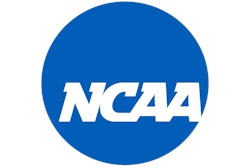
The former head tennis coach at Lewis University in Romeoville, Ill., provided impermissible benefits to three international student-athletes and violated unethical conduct rules when he instructed one of the student-athletes to conceal those benefits.
According to a decision released Tuesday by the NCAA Division II Committee on Infractions, the former head coach of both the Lewis men's and women's tennis failed to promote an atmosphere for compliance and violated head coach responsibility rules. Though not named in the NCAA release, AB Today has determined the former head coach to be Brett Bridel, who was employed by Lewis from 2007 to 2020. He was hired by Point University in West Point, Ga., to coach men's and women's tennis in August 2021, but the university's athletics directory currently doesn't list any tennis staff.
"The impermissible benefits violations first occurred when the scholarship for an incoming men's tennis student-athlete fell short of what the head coach anticipated," the release reads. "In an effort to make up for that shortfall — and secure the student's enrollment at Lewis — the head coach allowed the student-athlete to live rent-free at the head coach's residence for the spring 2019 semester, during which time the head coach also provided the student-athlete with free meals and transportation. The total value of the impermissible benefits was $3,840. The longtime head coach was aware that this arrangement violated NCAA rules and instructed the student-athlete to provide a false address to the school to conceal the violations.
"Further impermissible benefits were provided by the tennis program to a women's tennis student-athlete who stayed two nights cost-free in a hotel room with at least two men's tennis student-athletes during a men's tennis tournament. Additionally, the head coach also arranged for the women's tennis student-athlete to rent his wife's car at a discounted rate. Finally, the same women's tennis student-athlete and an additional men's tennis student-athlete were provided with cost-free housing at the head coach's residence, transportation and meals for at least one night during the Thanksgiving break."
As a result of the impermissible benefits, the three international tennis student-athletes competed in a combined 106 dates of competitions and received actual and necessary expenses while ineligible, according to the NCAA.
According to the NCAA's findings of fact, the coach stated to one student-athlete, "Here is my solution, but this MUST be just between you and me. ... You cannot say anything to [the director of international admissions] or anyone else at Lewis University. You will have the address of [family friends] who live nearby the university and say that you are going to live there to [the director of international admissions] or anyone else that asks you. I also believe there will be times you can stay on campus with guys from the team. ... This will create a big savings because you won't have dorm room and further expenses for this spring semester."
The coach further stated, "I know this is not perfect. I don't want you to think you cannot trust me. ... I thought of this solution and hope you will do it because I really want you to come here."
The student-athlete accepted the offer.
"Because the head coach was directly involved in many of the violations that occurred in his program, the committee determined that he failed to promote an atmosphere for compliance and violated head coach responsibility rules," Tuesday's release reads. "Furthermore, the committee found that the head coach violated ethical conduct rules when he instructed the first student-athlete to conceal the violations from the university."
The committee prescribed the following penalties and corrective measures:
- Three years of probation.
- A $5,000 fine.
- A vacation of records in which student-athletes competed while ineligible. The university must provide a written report containing the contests impacted to the NCAA media coordination and statistics staff within 14 days of the public decision release.
- A compliance audit conducted during the first year of probation by an outside agency that reviews amateurism and eligibility certification, financial aid administration and compliance education. The school shall implement and abide by recommendations made by the reviewer.
- A five-year show-cause order for the head tennis coach. During that period, any NCAA member school employing him must show cause why he should not have restrictions on athletically related activity.
- The compliance director must attend NCAA Regional Rules Seminars during each year of probation. The senior woman administrator and athletics director must also attend a Regional Rules Seminar during the first year of probation.





































